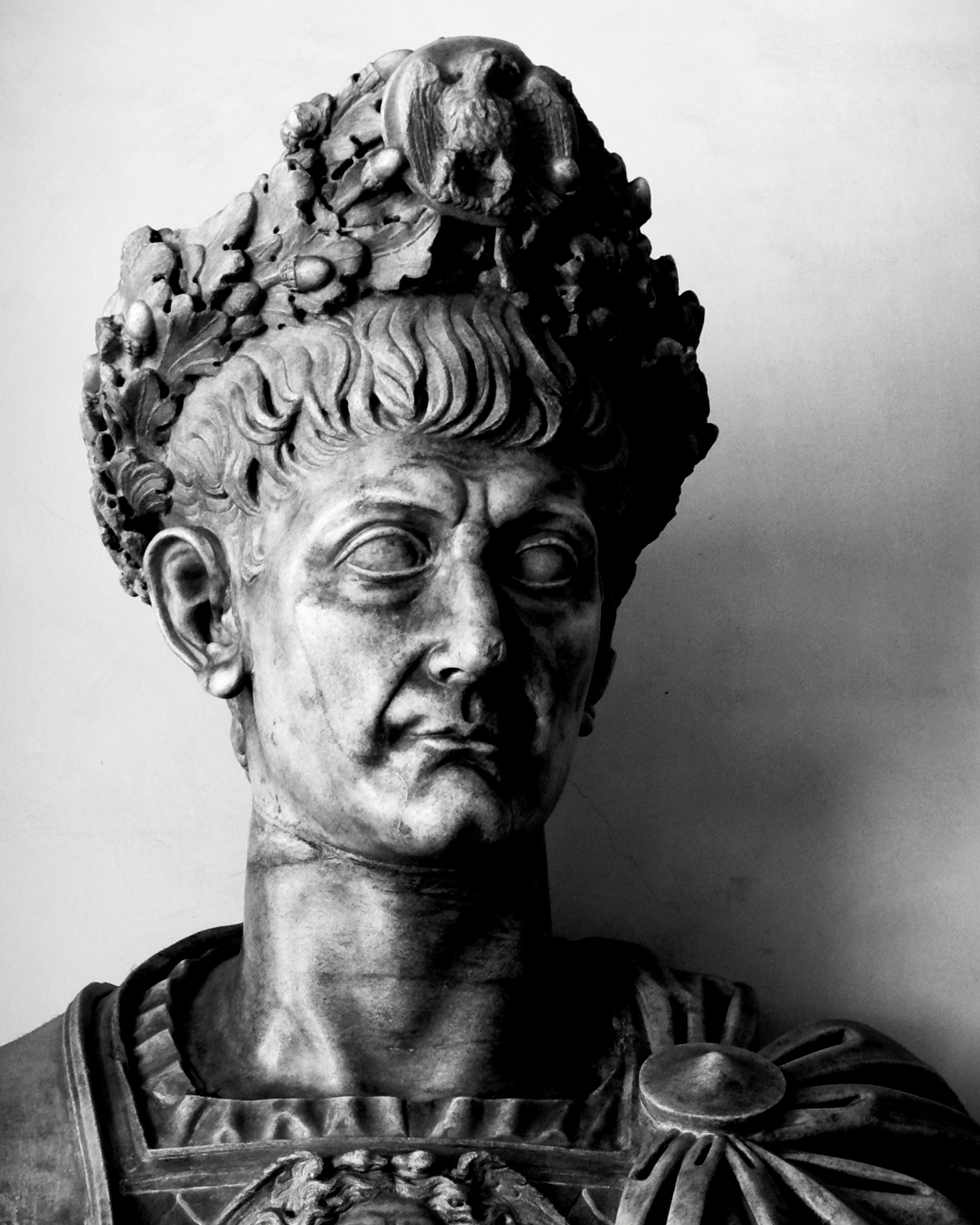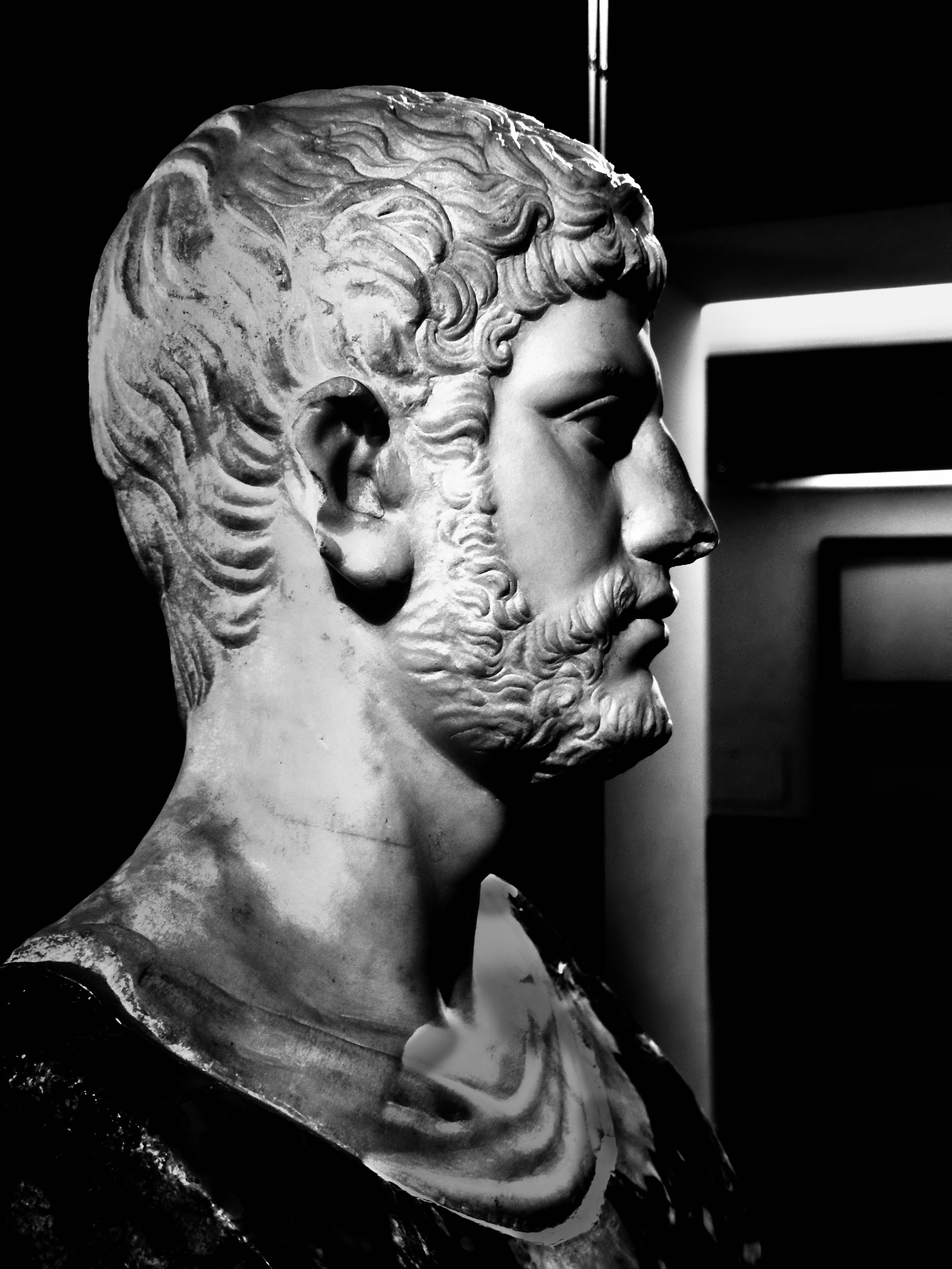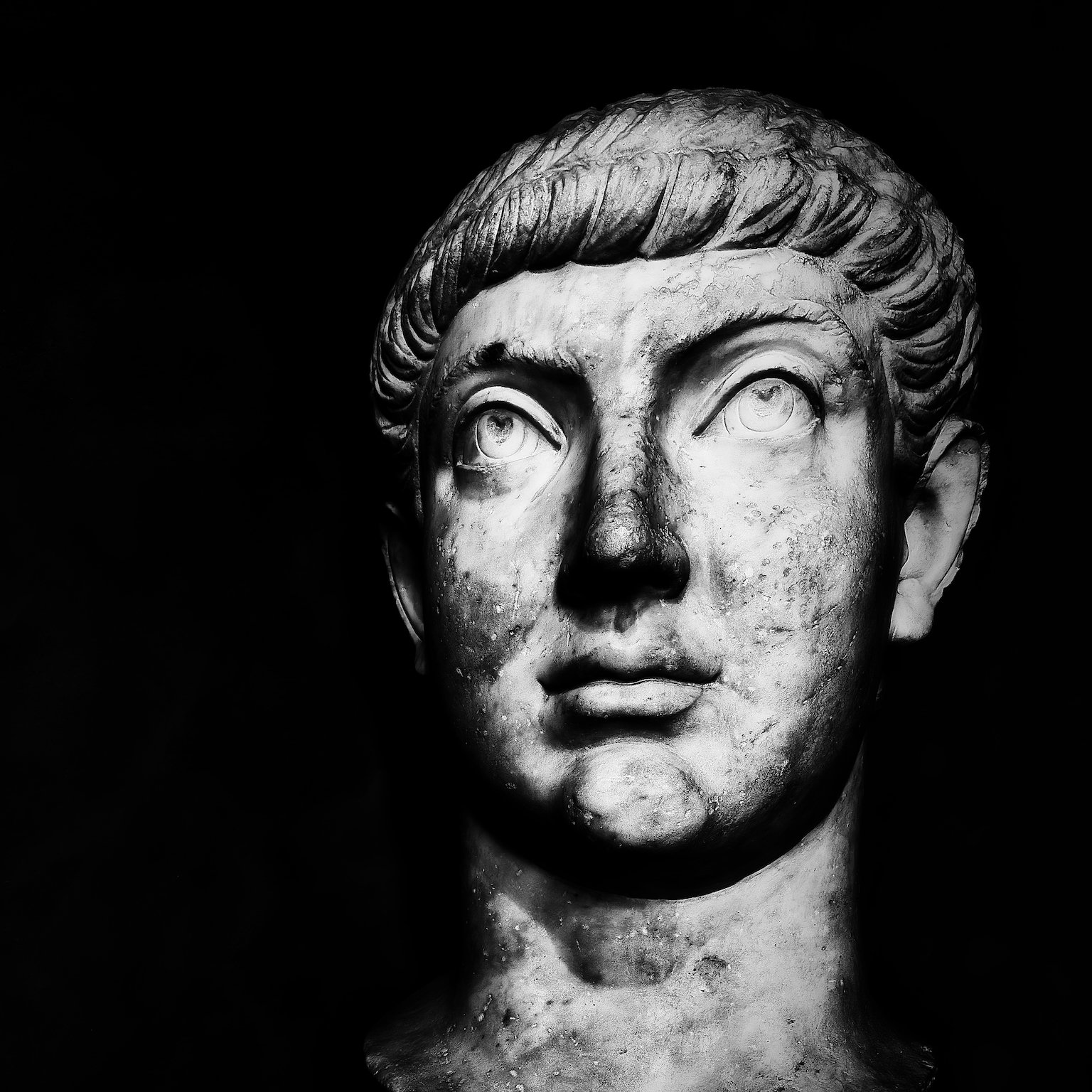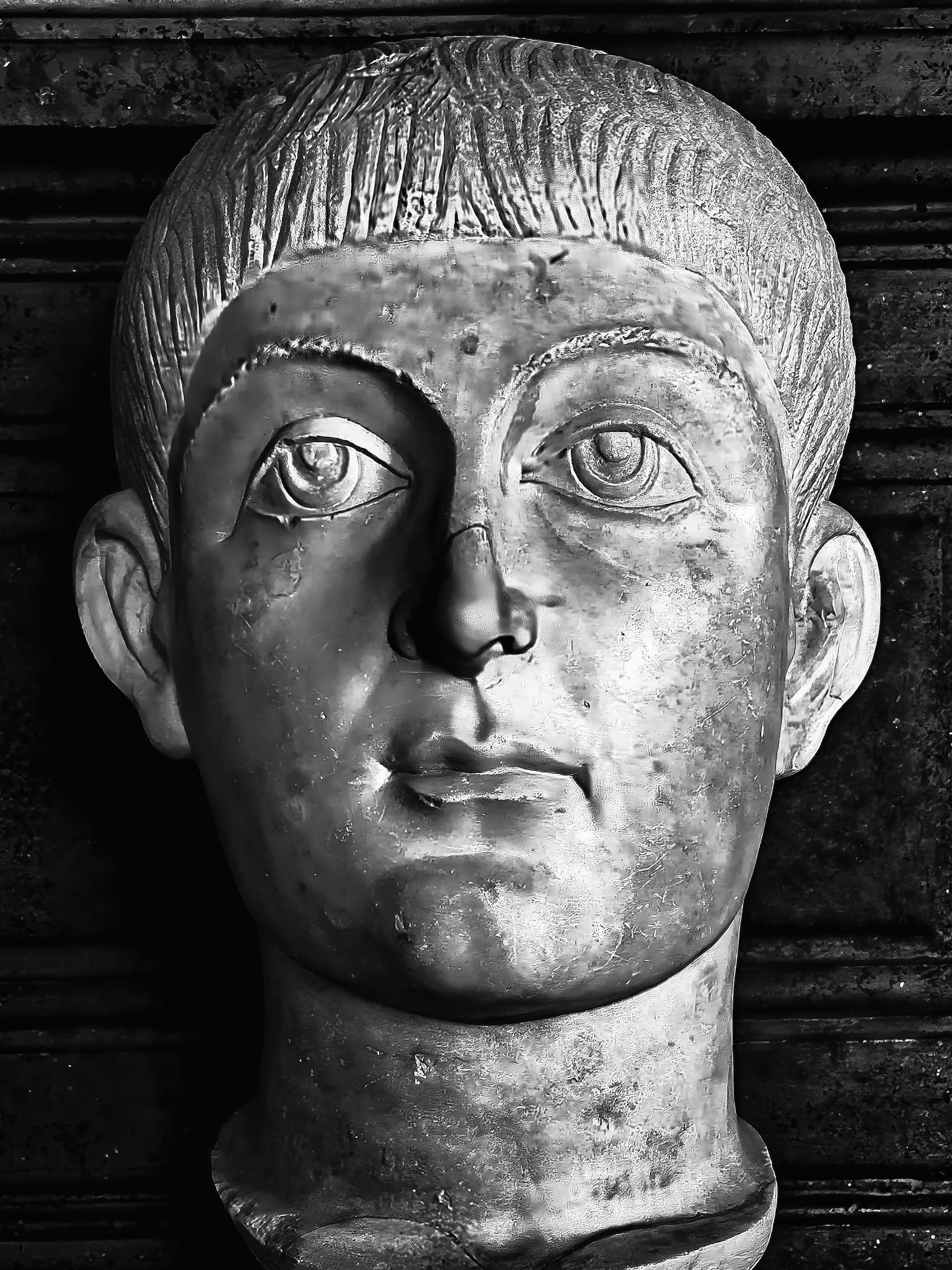Busted!
A GALLERY OF ROMAN EMPERORS
Augustus Caesar (r. 31 BC - 14 AD) was the first and most influential Roman Emperor. His great-uncle, Julius Caesar, was assassinated after brazenly seizing absolute power. Augustus was much savvier, however, in convincing the Roman people, weary from a decade of civil war, to trade their freedom for security under his iron rule.
Nero (r. 54 AD - 68 AD) became emperor at age 16 upon the death of Claudius. Extant sources describe him as a monstrous ruler, but that’s at odds with opinions of the day (Romans loved him) and his many accomplishments. Still, where there’s smoke, there’s fire.
Nerva (r. 96 AD - 98 AD) was the first of the so-called Five Good Emperors, a series of rulers who chose their successors based on merit rather than blood and who presided over a century of relative peace and prosperity. Nerva was acclaimed by the Senate following the assassination of Domitian.
Trajan (r. 98 AD - 117 AD) was adopted by Nerva for his military bona fides. Under his rule, the empire would reach its greatest extent. He was beloved by Romans and decreed "Optimus" or best.
Hadrian (r. 117 AD - 138 AD) assumed the principate after a deathbed adoption by Trajan. Hadrian abandoned the lands conquered by Trajan, rationalizing that the empire couldn't successfully administer such a vast territory. He was peripatetic, visiting every province in the empire at least once.
Antoninus Pius (r. 138 AD - 161 AD) was intended by Hadrian to be a stopgap until Marcus Aurelius and Lucius Verus came of age, but wound up ruling for 23 years. His reign was notable for the lack of wars and budget surplus he left behind.
Marcus Aurelius (r. 161 AD - 180 AD) was known as "the philosopher king" for his embrace of Stoicism. This made him a morally-centered ruler if not, in my opinion, a particularly effective one. The peace that had endured for a century began to fray under his rule, and he ended the practice of adopting a worthy successor, instead turning over the empire to his son Commodus who consistently ranks among the worst emperors.
Commodus (r. 177 AD - 192 AD) was the son of Marcus Aurelius and took the throne at age 18. While there are historical inaccuracies with his portrayal in the film "Gladiator," the malevolent glee with which Joaquin Phoenix played him is probably on the mark. He was a bad, bad, bad guy.
Elegabulus (r. 218 AD - 222 AD) came to power at age 14 by the machinations of his grandmother, Julia Maesa, who claimed he was the illegitimate son of deceased emperor, Septimius Severus. Elegabulus, from modern Syria, was notorious for his sexual proclivities with both genders, as well as wearing makeup and engaging in strange Eastern religious rituals. His guards murdered him after a short reign.
At age 14, Alexander Severus (r. 222 AD - 235 AD) donned the purple upon the death of his cousin, Elegabulus. Now here was a kid who tried really hard to learn the trappings of empire and generally succeeded until he was accused of cowardice for not fighting the Parthians. This might have been simple restraint on his part, but his guards felt his mother had too much power and led her momma's boy down this craven path. So, of course, they murdered him. That's 3rd century justice for you.
Constantius II (r. 337 AD - 361 AD) was 20 at the beginning of his emperorship. One of Constantine the Great’s sons, his reign was marred by paranoia, court intrigue and an endless stream of esoteric religious controversies as Christianity took hold. Oh, and he had most of his male relatives murdered so they couldn't overthrow him. Smooth.
Honorius (r. 393 AD - 423 AD) was declared Caesar at age 9. During his reign, the Visigoths sacked the city of Rome. When an aide rushed in announcing "Rome has fallen!" Honorius was shocked. "But I saw her eating earlier today!" So, yes, his immediate thought on hearing "Rome" was his pet chicken of the same name rather than the empire of millions of people under his rule. Sheesh. Honorius has gone down as one of the most incompetent emperors in Rome’s history. Despite this, he reigned for an interminable 30 years.
Bonus! Lucius Verus was co-ruler with Marcus Aurelius (r. 161 AD - 169 AD). Originally identified by Hadrian, he was adopted along with Aurelius by Antoninus Pius. While he was slightly more militarily-inclined than his co-emperor, he was also a renowned partier. He died after a short reign, likely due to smallpox, the disease behind the Antonine Plague which ravaged the empire.














